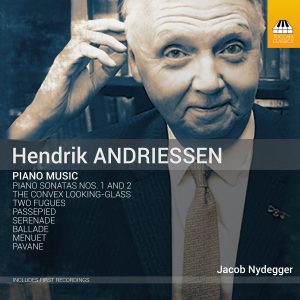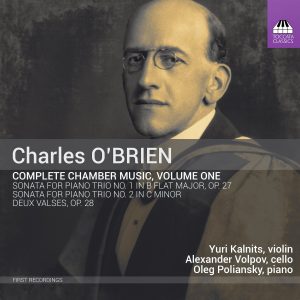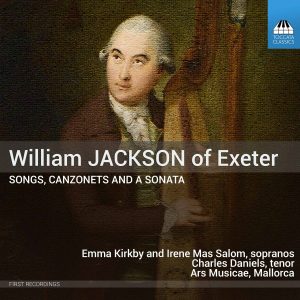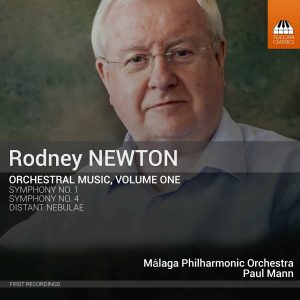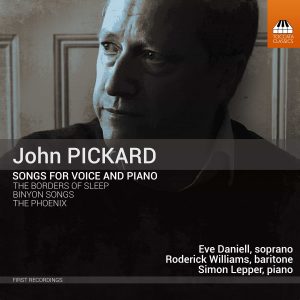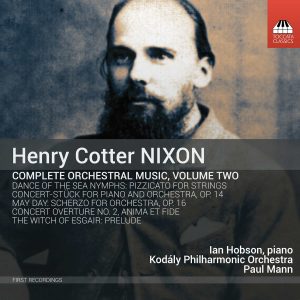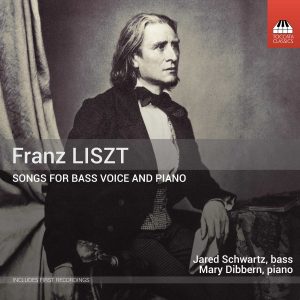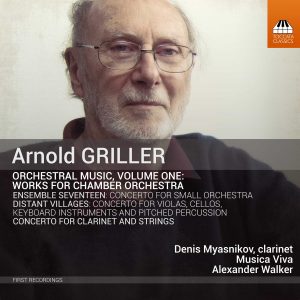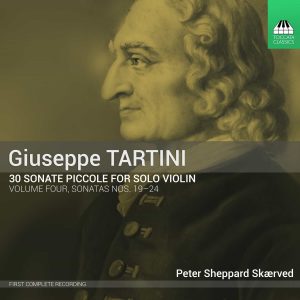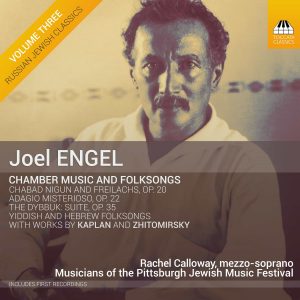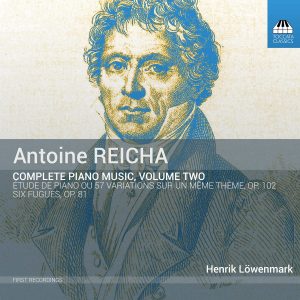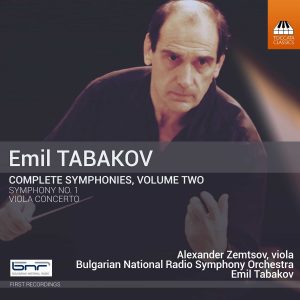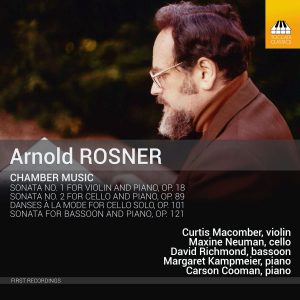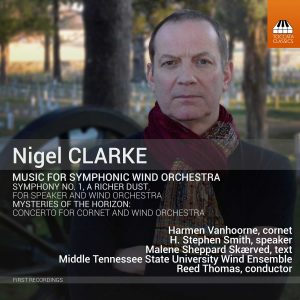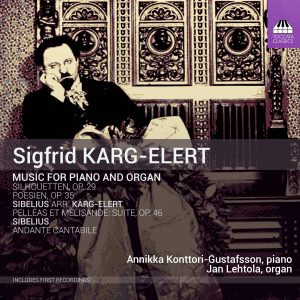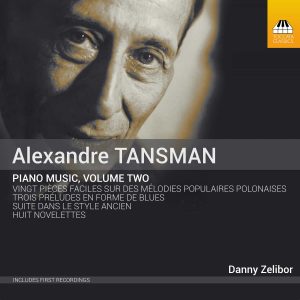Search Results for "Space Wolf: The First Omnibus mp3 torrent" – Page 33
Hendrik Andriessen: Piano Music
Although much of the music of the Dutch composer Hendrik Andriessen (1892–1981) has now been explored in recordings, his works for piano largely remain to be discovered. This first conspectus of his piano music covers fifty years of composition, showing how early influences – among them Bach, Brahms, Franck, Hindemith and Ravel – were subsumed into a musical language distinguished by its textural clarity and harmonic warmth.
Jacob Nydegger, piano
https://www.youtube.com/watch?v=1HecUSA1TLQ
Charles O’Brien: Complete Chamber Music, Volume One
The rediscovery of the music of the Edinburgh composer Charles O’Brien (1882–1968) continues with this first recording of his chamber music. Two stately ‘Sonatas for Pianoforte, Violin and ’Cello’ (as O’Brien styled them), with echoes of both Brahms and Elgar, cover a wide range of moods, from broad and sweeping melody, via introspective lyricism, to elegant good humour. And two salon waltzes combine effortless charm with surprising depth of feeling to bring the album to a relaxed close.
Yuri Kalnits, violin
Alexander Volpov, cello
Oleg Poliansky, piano
William Jackson: Songs, Canzonets and a Sonata
William Jackson of Exeter (1730–1803) – a painter and writer as well as a composer – has been, until now, something of a hidden treasure. As Timothy Roberts writes in his introduction to this first album of Jackson’s music, ‘his songs are rooted in English traditions, and if his harmonies rarely move beyond those of Corelli and Handel, Jackson’s emphasis on sensibility also brings hints of early Romanticism’. ‘His melodies were pure and natural’, as one contemporary observed, resulting in music that is both elegant and charming.
Emma Kirkby, soprano (Tracks 3, 5, 6, 13, 14, 16, 19)
Irene Mas Salom, soprano (Tracks 2, 3, 6, 13, 14, 16, 19), violin (Tracks 7, 9–11)
Charles Daniels, tenor (Tracks 1, 5, 7, 12, 15, 17)
Maria-Antònia Melià, flute (Track 4)
Bernat Cabot, violin (Tracks 7, 9–11)
Cristina Trenchs, viola (Tracks 9–11)
Sylvia Serrano, cello (Tracks 9–11, 12)
Timothy Roberts, harpsichord (Tracks 9–11)
Ars Musicae, Mallorca (Tracks 1–8, 12–19)
Rodney Newton: Orchestral Music, Volume One
The English musician Rodney Newton (b.1945) earned his living as an orchestral timpanist and percussionist, becoming known primarily for his works for brass bands. Until now his substantial output for orchestra has remained completely unknown. This first recording of two early symphonies reveals a composer with a natural sense of melody, drama and colour, and a strong feeling for landscape, in the tradition of such earlier British symphonists as Vaughan Williams and Arnold. The tone poem Distant Nebulae, inspired by Charles Ives’ The Unanswered Question, reflects the vastness of the heavens in music of understated beauty and elegance.
Málaga Philharmonic Orchestra
Andrea Šestaková, violin (Track 2)
David Llavata, trumpet (Track 8)
Paul Mann, conductor
John Pickard: Songs for Voice and Piano
The English composer John Pickard (b. 1963) is best known for a series of powerful orchestral works, five symphonies among them. But this album of songs – his complete output for voice and piano to date – demonstrates that he can generate drama on a smaller scale, too. These settings – of two less familiar poets of the First World War, often exploring man’s relationship with nature, and a translation of a ninth-century Anglo-Saxon phantasmagorical allegory – encompass a wide range of moods, requiring soaring vocal lines, declamatory authority and the gentlest intimacy, supported by piano textures that can are up in freewheeling virtuosity.
Roderick Williams, baritone (Tracks 1-5, 7-15)
Eve Daniell, soprano (Track 6)
Simon Lepper, piano
Henry Cotter Nixon: Complete Orchestral Music, Volume Two
The English composer-conductor Henry Cotter Nixon (1842–1907) has entirely disappeared from music history. But this series – presenting all his surviving orchestral music in its first-ever recordings – reveals him to have been one of the most accomplished English composers of his generation, with a style that takes in elements of Mendelssohn, Schumann, Verdi and Brahms. This second volume confirms his ability to handle extended symphonic structures and also presents a Sullivanesque lighter side.
Ian Hobson, piano(Tracks 2 – 5)
Kodály Philharmonic Orchestra
Ferenc Nagy, euphonium (Track 1)
Paul Mann, conductor
Franz Liszt: Songs for Bass Voice and Piano
Throughout Liszt’s long career, his songs – perhaps the most neglected part of his enormous output – took a radical approach to form, eschewing convention in search of a sincere musical response to each text. His free-spirited creativity meant that a single song would often call on a range of stylistic devices, among them bel canto vocal lines, unaccompanied recitative, orchestrally conceived piano textures and audacious harmonic procedures. This first recording of Liszt songs by a bass voice brings out both the power and poetry of his remarkable imagination.
Jared Schwartz, bass
Mary Dibbern, piano
Arnold Griller: Orchestral Music, Volume One
The composer Arnold Griller (b. 1937), son of the violinist Sidney Griller, grew up in London, surrounded by some of the world’s best-known musicians. In spite of this propitious beginning to his career, his considerable output remains largely unknown. This first volume of orchestral pieces presents three of his major works – music that turns out to be highly individual, often moving unexpectedly between moods of excitement and drive, wry humour and deep emotion. His influences and interests range widely, from Domenico Scarlatti to such twentieth-century masters as Milhaud (his main teacher) and Stravinsky, and on to composers of today. Melodic lyricism, rhythmic intensity, textural clarity and contrapuntal complexity combine with a generosity of musical ideas to produce a unique style and voice.
Denis Myasnikov, clarinet (Tracks 2 – 4)
Musica Viva
Alexander Walker, conductor
Giuseppe Tartini: 30 Sonate piccole, Volume Four – Sonatas Nos. 19-24
In the last years of his life, the great composer, violinist and swordsman Giuseppe Tartini (1692–1770) laboured at a cycle of sonatas for solo violin. The resulting manuscript offers the most important composition for solo violin after Bach and, at six hours in duration, the largest integrated work for the instrument. This first complete recording is based on a fresh study of the source and includes a number of works deciphered from Tartini’s shorthand and overlooked in earlier editions.
Peter Sheppard Skærved
Joel Engel: Chamber Music and Folksongs
Unofficially considered ‘the father of Jewish music’, Joel Engel (1868–1927) paved the way for a nationalist movement that used Yiddish and Hebrew folksongs as the basis of a serious art-form. Well before Kodály and Bartók in Hungary, Engel went out to the shtetls of eastern Europe, writing down the villagers’ songs and then composing music inspired by his excursions. This first-ever album of his music reveals the melodic immediacy of these songs and instrumental pieces, capturing the soul of a people and a centuries-old vanished culture.
Antoine Reicha: Complete Piano Music, Volume Two
The piano works of the Czech-born composer Antoine Reicha (1770–1836) – friend of Haydn and Beethoven, teacher of Berlioz, Liszt and Franck – is one of the best-kept secrets in music. He was an important influence on composers of the next generation, but apart from an innovative set of fugues his piano works have remained almost unknown since his own day. Encompassing Baroque practices as well as looking forward to the twentieth century, they are full of harmonic and other surprises that show this liveliest of minds at work. The massive variation-set on a French gavotte recorded here for the first time reveals a composer who tempers his learning with a vivid sense of humour.
Henrik Löwenmark, piano
Emil Tabakov: Complete Symphonies, Volume Two
The Bulgarian Emil Tabakov (b. 1947) follows in the footsteps of such musicians as Gustav Mahler and Richard Strauss, being active as both composer and conductor. Like Mahler, he prefers to write for large forces and now has nine symphonies to his name. Again like Mahler, Tabakov’s symphonies explore the darker side of the human spirit in epic scores as austere as they are powerful. Both the First Symphony and the Viola Concerto use small motifs to build up compelling symphonic structures, generating expansive, sometimes bleak, post-Shostakovichian landscapes that can explode with violence and energy.
Arnold Rosner: Chamber Music
The musical language of the New York-based Arnold Rosner (1945–2013) clothes the modal harmony and rhythm of pre-Baroque polyphony in rich Romantic colours, producing a style that is instantly recognisable and immediately appealing. These four chamber works, all receiving their first recordings, embrace a wide range of emotions, from tragic nobility to buoyant good humour, with Rosner’s use of modality adding a hint of the Orient.
Curtis Macomber, violin Tracks 1–3
Maxine Neuman, cello Tracks 4–7, 11–13
David Richmond, bassoon Tracks 8–10
Margaret Kampmeier, piano Tracks 1-3
Carson Cooman, piano 8–10
Nigel Clarke: Music for Symphonic Wind Orchestra
A Richer Dust, the epic First Symphony of the English composer Nigel Clarke (b. 1960), explores what it means to live with violence and extremism, the constant companions of human history. The work intertwines words by Malene Sheppard Skærved with Clarke’s music, weaving together ideas and images in fragments of text from both historically significant figures and voiceless, ordinary people. The dark and powerful atmosphere of the Symphony is prefaced by the bright and sassy sound of Clarke’s Magritte-inspired Mysteries of the Horizon, a concerto for cornet and wind orchestra.
Sigfrid Karg-Elert: Music for Piano and Organ
As the popularity of domestic music-making grew through the nineteenth century, it brought first the piano and, then, often the harmonium into well-off living-rooms across the western world. Composers naturally responded, with original works and arrangements: Sibelius’ Andante cantabile was written after a visit to relatives who had both instruments in their salon; Karg-Elert, by contrast, was one of the world’s outstanding virtuosi on both harmonium and organ and composed with his concert public in mind. This recording thus revives long-forgotten sonorities that once would have been very familiar.
Annikka Konttori-Gustafsson, piano
Jan Lehtola, organ
Alexandre Tansman: Piano Music, Vol. 2
Alexandre Tansman (1897–1986) was one of the most prolific composers of the twentieth century. His fundamental style is a Stravinskyan Neo-Classicism, animated by the dance-rhythms of his native Poland and energised by a masterly command of counterpoint. This second instalment in the first-ever survey of his piano music demonstrates its stylistic range, from Neo-Baroque via Polish folk-music and the orient to the blues.
Danny Zelibor, piano
Stay In the Know
JOIN THE TOCCATA NEWSLETTER
"*" indicates required fields
By visiting our site, you agree to our privacy policy regarding cookies, tracking statistics, etc.
